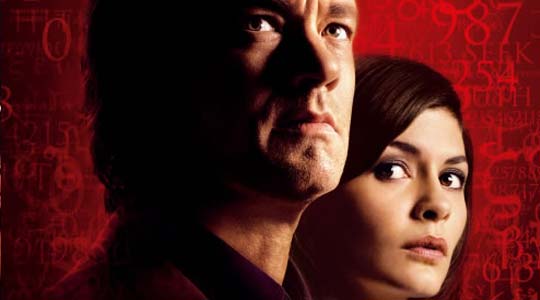
Dan Brown's novel The Da Vinci Code caught the literary world by surprise with its enormous commercial success. The convoluted but wildly entertaining story revolved around renowned Harvard symbologist Robert Langdon's attempts to unravel a murder mystery that took him from the Louvre to Westminster Abbey and several other very old churches, and alluded to historical figures from Da Vinci and Isaac Newton to Jesus and Mary Magdalene. Seemingly at every turn, Langdon and French cryptologist Sophie Neveu are forced to solve some sort of puzzle to bring them closer to the mythical Holy Grail while trying to keep one step ahead of French inspector Bezu Fache, who believes that Langdon is behind the series of murders. The book's popularity also made it somewhat controversial, as it poses some questions about the life of Jesus that some people consider an attack on their beliefs.
Naturally, when a book achieves that level of success, a movie soon follows. Ron Howard's adaptation of The Da Vinci Code received a large boost of free publicity from people concerned about the theological content of the film. One church near me has even been running a series of lectures titled "The DaVinci Code: Fact or Fiction?" (Answer: It is FICTION. Nobody associated with the book or the film has ever, to my knowledge, suggested otherwise. It's certainly fun, and at times thought-provoking, but fiction nonetheless. Besides, I've always been under the impression that it was a good thing when a book or a film provoked thought.) The hype also probably contributed to an unfortunate critical backlash, complete with reviewers questioning the intelligence of the book-reading community and resorting to really bad puns, like using the name Bezu Fache as an interjection, to disparage people who had the unmitigated gall to like something they obviously didn't get themselves.
Once you tune out all the distractions, though, what's left is a film that almost matches the enjoyability of the book. The movie mostly follows the story line of the book, except unfortunately for the denouement that is made overly complicated and allowed to run too long. Tom Hanks gives his typical performance as Langdon, bringing appropriate amounts of thoughtfulness and passion to the character. Audrey Tautou also does well as Neveu, who gradually comes to understand who her grandfather really was and the secret he died to protect, along with her own importance to the mystery. The standout performance, though, comes from Ian McKellan as the eccentric, grail-obsessed Sir Leigh Teabing. He gives his role enough of a Bond villain feel to keep the movie from getting too serious. The action is fast paced, as almost all of the story takes place over one night and the following morning, but well presented and not very difficult to follow.
Ultimately, a lot of your opinion of the film The Da Vinci Code will depend on how you felt about the book. People who liked the book shouldn't need my recommendation to go see the movie, and people who didn't like it will probably not be swayed by seeing the story on screen. If you're not familiar with the story but are curious, I'd recommend reading the book first (along with Dan Brown's prior Robert Langdon adventure, Angels and Demons), but I still found the film version of The Da Vinci Code an enjoyable, entertaining experience.
Overall Grade: A-



No comments:
Post a Comment